Last year marked the beginning of a new era for Lakeland Dairies and another step in the slow journey towards greater consolidation in the Irish dairy processing sector. Having completed a merger with LacPatrick early last year, Lakeland can now claim to be the second largest dairy processor on the island of Ireland.
The Cavan-based farmer co-op saw its sales breach the €1bn milestone last year for the very first time, while its total milk pool on the island of Ireland grew to a significant 1.85bn litres. Lakeland is now supplied by more than 3,200 dairy farmers both north and south of the border.
Roughly, 1.05bn litres of its milk pool comes from Northern Ireland, while the remaining 800m litres is produced by milk suppliers in Ireland. The LacPatrick takeover gives Lakeland a significant footprint in both jurisdictions with four plants located in Northern Ireland and another four plants south of the border in Cavan and Monaghan.
Profits
For 2019, Lakeland Dairies made an operating profit of €20.5m, which was up 17% on the previous year. Profit margins for the co-op narrowed slightly from 2.2% in 2018 to 2% last year. Lakeland’s earnings (EBITDA) grew by 28% last year to just under €43m, as earnings margins held firm at 4.1%.
The growth in profits is all the more impressive given that LacPatrick was a loss-making business when Lakeland took control of it last year.
The co-op now owns the Champion and Ballyrashane brands for liquid milk, butter, cheese and cream products
Overall, Lakeland’s sales for the year grew by 28% in 2019 to just over €1bn. The co-op’s dairy ingredients division accounts for over half (56%) of all sales with turnover in the division growing strongly by 19% last year to €584m. Lakeland’s food service division saw a slight drop (-3%) in sales last year to €239m, while sales in its agribusiness division were down 2% to €72.3m.
The acquisition of LacPatrick brought a new trading division into the co-op in the form of branded consumer foods. The co-op now owns the Champion and Ballyrashane brands for liquid milk, butter, cheese and cream products. For 2019, this new consumer foods division contributed sales of just under €140m.
The co-op now employs more than 1,200 people across its eight sites
According to the accounts, the addition of LacPatrick contributed total revenues of €232m last year between consumer foods and ingredients. The acquisition also boosted the net asset value of Lakeland to just under €200m at year-end.
The co-op now employs more than 1,200 people across its eight sites and has sales to 80 markets around the world.
Expectations
Speaking exclusively to the Irish Farmers Journal this week, Lakeland Dairies’ chief executive Michael Hanley said the takeover of LacPatrick was completed in April 2019 and the business has so far “performed to expectations”.
“2019 was a significant year for Lakeland Dairies. We were able to grow our profits last year, which is a significant result given the fact that the LacPatrick business had been loss-making in 2018. We’re satisfied that the LacPatrick business is performing to expectations and we will continue to review all our operations going forward,” said Hanley.
It’s understood this was a loss-making business
Since acquiring LacPatrick last year, Hanley and his senior management team have been busy integrating the business as part of the enlarged co-op and looking for synergies. In the last year, Hanley said the co-op has shut down its yoghurt processing business at the Monaghan site and ceased making yoghurt altogether. It’s understood this was a loss-making business.
At the same time, the co-op has also halted butter packing at the Monaghan site as this can be done more efficiently at some of its other plants. The Monaghan site will now solely focus on liquid milk processing.
The co-op has also had to make a significant capital investment into LacPatrick’s Artigarvan site over the last 18 months in order to bring it up to operational capacity. While LacPatrick invested some €42m in a new 7t/hour drier at Artigarvan as recently as 2017, it’s understood there were significant operational issues with the site that needed further investment to get it up and running efficiently.
According to Lakeland’s accounts for 2019, the co-op values the LacPatrick acquisition at just over €60m. This figure includes a €14.5m valuation on product stocks at the time of acquisition, a €78m valuation on the fixed assets of LacPatrick such as its processing sites, as well as a near €14m valuation on LacPatrick’s consumer dairy brands, including Champion, Ballyrashane and LP milk powder.
The valuation also comprises some €35m owed to trade creditors as well as net debts of more than €41m connected to the LacPatrick business.
Taking on the debt from the LacPatrick deal has seen Lakeland’s net debt rise by over €30m to stand at €111m at year-end 2019
Lakeland has now assumed these debts as part of the deal.
Hanley said the co-op had restructured this debt in the last year after some difficult negotiations with Danske Bank and that the debt is now held with the five banks that Lakeland Dairies works with.
Taking on the debt from the LacPatrick deal has seen Lakeland’s net debt rise by over €30m to stand at €111m at year-end 2019. While this is a sharp increase in debt for the co-op in a single year, Lakeland’s chief financial officer Peter Sheridan said the co-op’s level of borrowings was “comfortable” at just under 2.6 times EBITDA.
While 2019 was a year of integrating a new business, 2020 has brought unprecedented challenges for Lakeland following the outbreak of COVID-19. Hanley is upfront about the impact COVID-19 has had on the co-ops business stating that Lakeland’s foodservice division saw a “collapse” in sales in the second quarter of the year as lockdown restrictions were introduced across Europe.
Strong
“The start of 2020 was actually really strong but then COVID really attacked the market. Our foodservice business has been very challenged because of it.
“We had a very poor Q2 after sales collapsed. Thankfully, foodservice sales are now back to 60% or 70% of where they should be. And we anticipate they will be back to 80% of normal levels by year-end,” said Hanley.
The Lakeland boss said dairy commodities saw a sharp fall in prices back in April close to intervention levels but have since recovered
In terms of the day-to-day response to COVID-19, Hanley said the co-op took the welfare of its employees very seriously and had installed all necessary precautions at its facilities. No employee of the co-op has tested positive for COVID-19 since the pandemic began to spread in Ireland in March.
While COVID-19 restrictions are easing across the world and helping demand, Hanley’s outlook for the wider dairy market is cautious.
The Lakeland boss said dairy commodities saw a sharp fall in prices back in April close to intervention levels but have since recovered, albeit to lower levels than where they were pre-pandemic.
Hanley adds that strong demand from China and the opening of private storage aid in Brussels helped support the dairy market recovery in May and June.
However, Hanley says he is worried about stock building in Europe and Asia. On top of this, milk production in key regions such as the US is rising strongly. While dairy markets look stable at the moment, Hanley says he is worried where dairy markets might be by the end of the year.
Consolidation has been slow in the Irish dairy industry but it’s clear Lakeland is a co-op that will be around for the long term
Lakeland’s takeover of LacPatrick means it is now the largest dairy processor in the northern half of the country by quite a distance. Consolidation has been slow in the Irish dairy industry but it’s clear Lakeland is a co-op that will be around for the long term.
Lakeland has a strong balance sheet and the acquisition will give it added processing capacity to handle a growing milk pool over the coming years.
This will allow Lakeland to focus on paying down its debt before it has to make any additional capital investments.



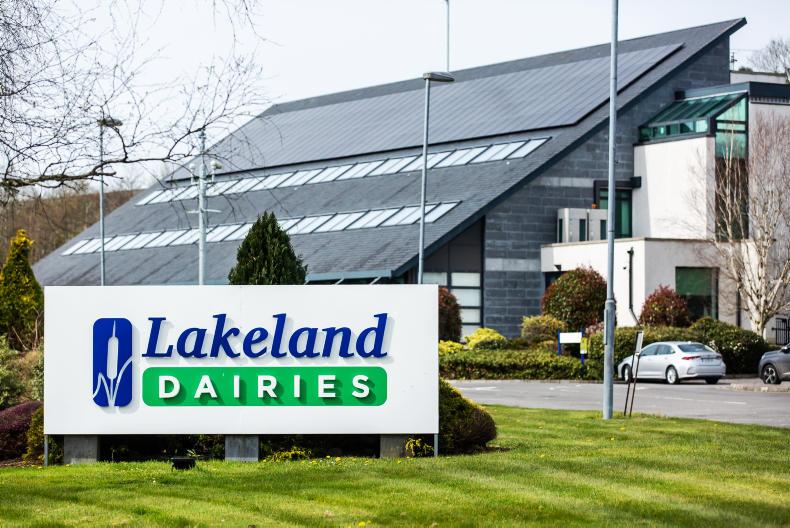

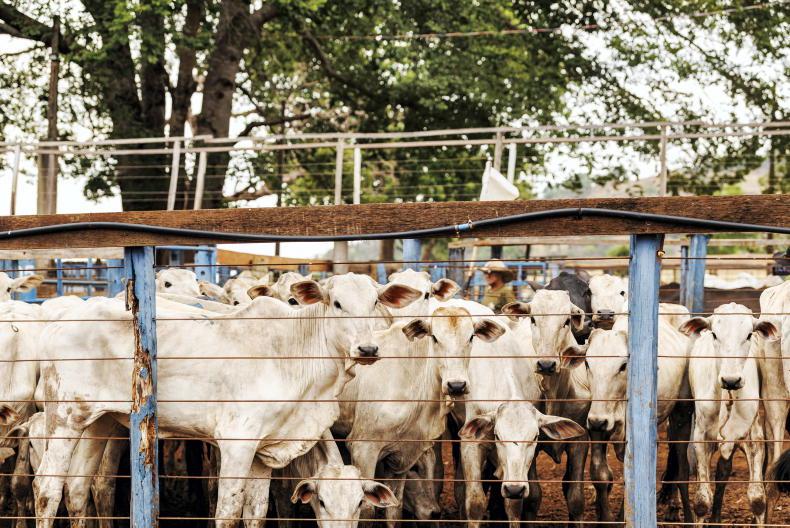

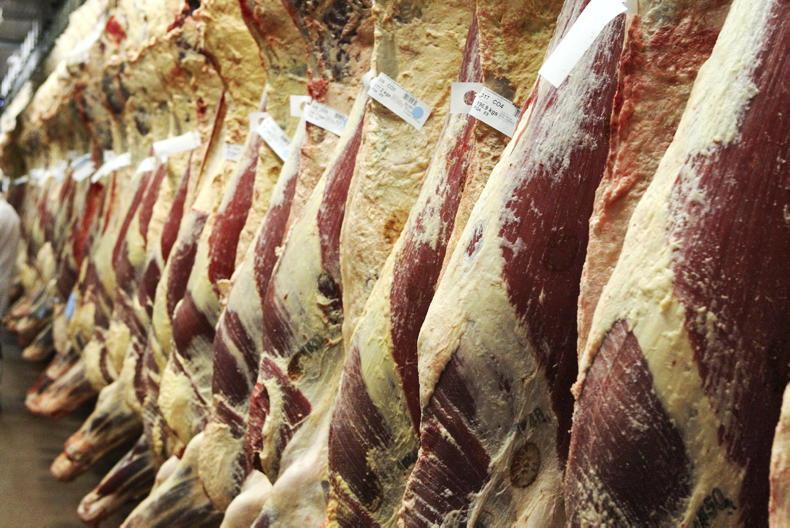
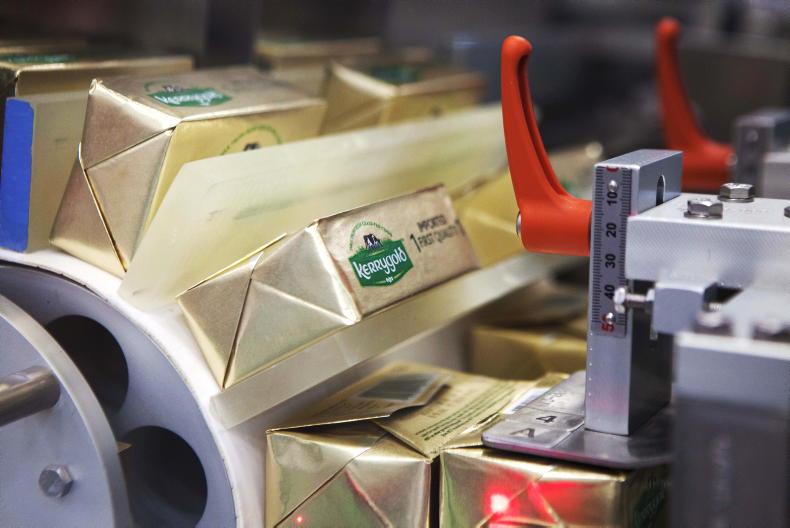
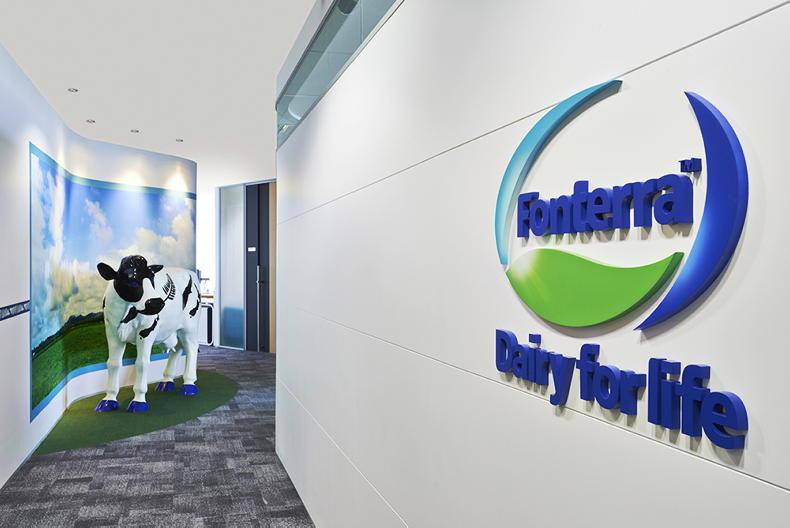
SHARING OPTIONS